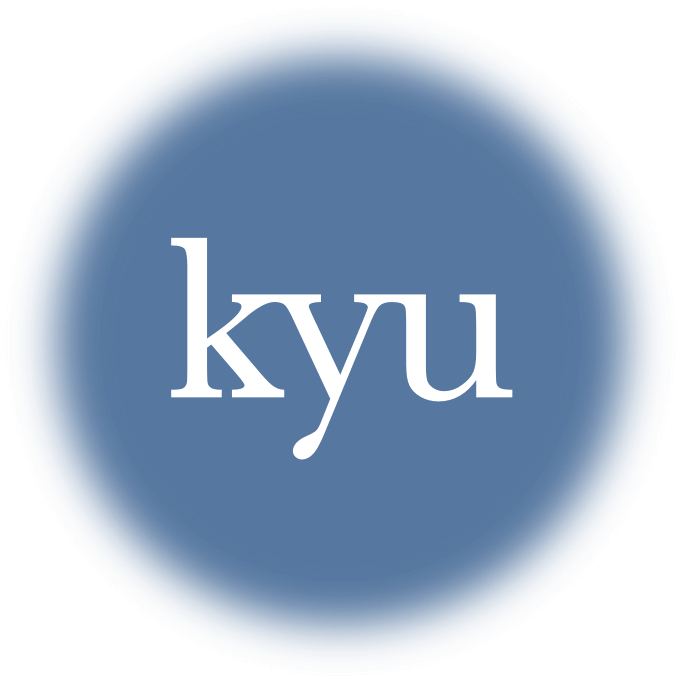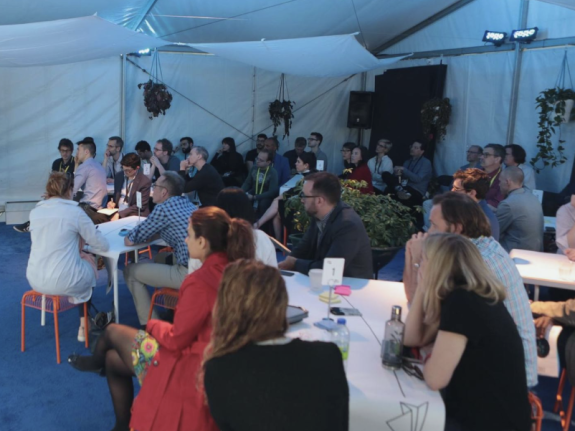
Joining Forces for C2 Montréal - Part 3
”Ideate for Impact: Supporting Livelihoods of Refugees Through Empathy, Design and Innovation”: A Lab with Scott Shigeoka and Alisa Ahmadian from OpenIDEO in collaboration with The Radcliffe Foundation and WISE Initiative

What was the objective of your lab?
It started as a Slack conversation: What if folks (outside of leadership) from the kyu collective came together in a grassroots, bottom-up way to design a collaboration to understand how we might drive social impact together? The question picked up interest from Antoine, Joelle and Alexa from the C2 Team. We hopped on a video conference to connect and then discuss what would be possible together.
Bringing C2’s experience design perspective and OpenIDEO’s work bringing communities together to design for social impact, we co-created a three-day experience at C2 Montréal 2017 called “Ideate for Impact.” We focused on a topic dear to Montréal and our communities: supporting refugees.
What we have uncovered from previous work is the opportunity for companies to support government and non-governmental efforts to support refugees. Since C2 Montréal brings a unique cohort of business leaders, we wanted to identify a cohort of participants interested in the topic and connect them together. Throughout the sessions, we would challenge them to identify what core competencies they could leverage to achieve quick wins (actions that can have results within a month, or even a week) to help refugees build livelihoods around the world.
Tell us about your approach. How did you structure your lab and the activities?
At the heart of this program were the voices of the refugees themselves. Four local, resettled refugees in Montréal of varying ages and experiences participated as “empathy guides,” helping us design the sessions. We also connected with a cohort of funders and implementors in the space (featuring a diversity of large and small organizations with varying approaches). Refugees and topic experts attended the three-day experience to share stories and insights, humanizing the event and making sure that the ideas were rooted in empathy and connection.
What are some interesting and/or unexpected learnings from the 3-day session? (For instance, was there a proposed idea that really caught your attention?)
During the workshop kyu members (and kyu collective team members) showed up to participate in the 3-day session as well. From partners to new employees working at kyu member companies, we had a wide range of leadership and experience in the room represented by the collective.
By the end of the third day’s session, people went up one-by-one to declare their commitment in the space. One of our Empathy Guides who was living in Montréal and has experience as a fashion designer was having difficulties finding opportunities. Someone living in the city with deep connections (who is an employee of a kyu member company) offered to make connections. There were also commitments made by business leaders of large companies who want to meaningfully connect and engage with refugees as they design efforts at their organizations. One individual said they “recognize the importance of leading with empathy instead of jumping straight into solutions” as a result of the workshop.
Due to the safe and confidential space we collectively held, I am unable go into details about what exactly the ideas were – but they were inspiring. Many participants shed tears and embraced in hugs – it was a very emotional process. We are continuing the momentum, deepening the relationships in this community of practice and also thinking about ways to level up the ways we can support refugees.
Part 1: SYPartners | Part 2: BEworks